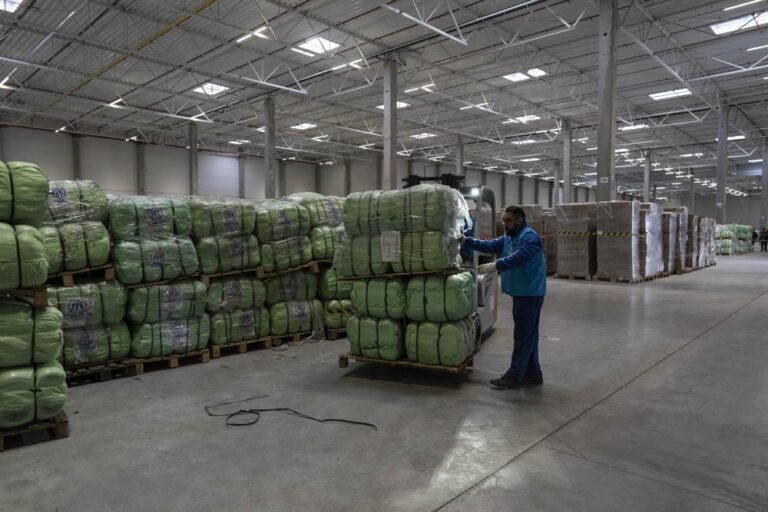
(AP) — As Russia’s invasion of Ukraine enters its fourth week, aid agencies continue to ramp up their efforts to bring much-needed relief supplies to civilians affected by the fighting, and also to over 3.2 million refugees who have fled the country since the conflict began.
Rzeszow, the largest city in southeastern Poland, roughly 100 kilometres from the Ukrainian border, has become a humanitarian aid hub for the region. By road and by air, aid supplies — including food, blankets, solar lamps, warm clothing, mattresses, jerrycans and plastic sheeting — continue to arrive in a massive warehouse run by the U.N. refugee agency, UNHCR, next to the airport outside Rzezsow.
“What we have been doing is bringing more people into the country, bringing more assistance into the country, working with partners to make sure that we can work effectively, to do what we can to help,” said Matthew Saltmarsh, UNHCR spokesman.Saltmarsh said the UNHCR’s emergency appeal to provide aid to the countries bordering Ukraine has raised in the past month “well over 300 million (U.S. dollars), lots of donations from the private sector” and that the agency has managed to deliver some of the relief supplies to Ukraine. So far, the UNCHR has moved 22 trucks and soon plans to move another 10 with emergency supplies to the western Ukrainian city of Lviv, not far from the Polish border. Lviv has largely been spared the scale of destruction unfolding further east, becoming the first destination for many of those fleeing the country.
Some of the aid transported to the city has been unloaded and distributed there, Saltmarsh said, but the rest is waiting to go on when the security situation allows humanitarian assistance to reach the hardest-hit parts of the country, including the port city of Mariupol which has been besieged and subjected to punitive Russian attacks almost since the start of the war.
“That is obviously very worrying and a big challenge for the humanitarian community,” he added.
Some of the refugees arriving in countries bordering Ukraine Thursday spoke of growing desperation in Ukrainian towns besieged and bombed by the Russian army.
“There is no water, there is no electricity, there is no food…children are crying, it is cold (there) and scary,” said Irina Bogdaniuk, 24, from Sumy, in eastern Ukraine, after arriving in the Polish border town of Medyka. Sifting through her phone, Bogdaniuk showed photographs she said she had taken of destruction of her city, including that of a killed civilian lying in a pool of blood in the middle of a street.
A Red Cross official in Lviv said some of the supplies reaching the city were being sent to other parts of Ukraine when that is possible.






